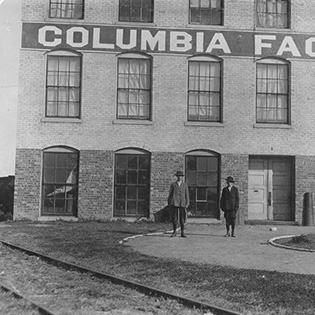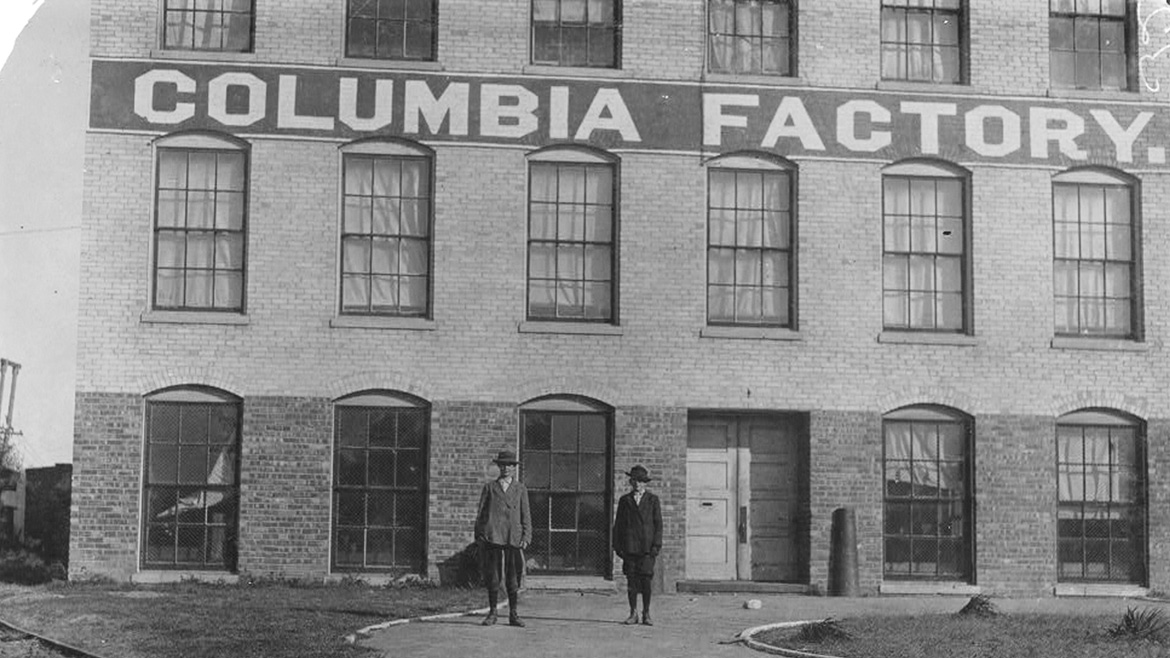The Next Pot o’ Gold


Almost 110 years ago, Columbia’s first major industrial enterprise — the Hamilton-Brown Shoe Company — got underway in the still-standing brick factory building at 1123 Wilkes Blvd., at the corner of Fay Street. One of dozens of shoe factories sprinkled across the state, several hundred “operatives,” as they were referred to at the time, provided a major economic boost to this small college community. Racked by the economic depression of the 1930s, closing for a while in 1931 before resuming production a few years later, the plant finally shut down in 1939. The economic setback was significant. Industry bypassed Columbia because it lacked mainline rail service while both residents and the town’s fathers eschewed “smokestack industry” or ventures marked by labor instability.
The completion of Interstate 70 across Missouri in 1965 renewed interest among local leaders in attracting both light manufacturing industry and warehouse operations, as tracts zoned for such entities were set aside along several accessible corridors. An industrial development agency was created — Regional Economic Development Inc., or REDI, being the current iteration — that oversees and promotes this activity. Over the years, Columbia’s development economy has varied with periodic gains and, unfortunately, some losses up and down the two principal corridors, the first bracketing Route B, with some access to the city-owned COLT railway branch to the Norfolk Southern mainline at Centralia, and the newer LeMone Industrial Park on the city’s southeast edge.
One of the more recent spurts of positive economic news was IBM’s choice of Columbia for an operations support office. The result of a highly orchestrated community-wide effort, IBM has been a disappointment, failing to achieve originally stated employment goals. Anyone familiar with IBM’s record as an employer in a number of communities in New York’s Lower Hudson River Valley would have been skeptical of all the rah-rah enthusiasm over Big Blue’s job creation promises enunciated several years ago.
On the other hand, the region has reasons to celebrate: the use of Chapter 100 bonds allowing Columbia Foods to continue operating the nation’s largest hot dog factory, and the noteworthy expansion of non-manufacturing ventures including Veterans United, Midway USA, and the Missouri Higher Education Loan Authority, or MOHELA, among others.
Economic development initiatives are the realm of REDI, whose board members occasionally leave hints of leads from entities hither and yon who have shown interest in setting up shop here. Protective secrecy is the watchword as various projects function under the guise of code words.
There are reminiscences of failure, such as the Dollar General warehouse that ended up in Fulton or the entity that needed better airline service than we were able to offer at the time. So-called “shovel ready” sites, the Ewing site among them, are bandied about as possible locations for new business ventures, while rumors are always afoot about hauling in that truly large tax-generating Big Magilla, that Holy Grail of Grails called a data center.
Who knows what REDI’s periscope is reconnoitering these days? That’s their business, and we respect the need for privacy and confidentiality up until the day they’re ready to announce something. At the same time, we need to caution ourselves that what may look like a pot o’ gold could end up being something akin to inviting a pig into our parlor. What we want is a happy customer that, over the long term, will provide a base of steady employment and won’t offend the values that we cherish and hold dear.
While Columbia wants to land the next “big one,” the city’s balks over sewer connections and other tension-generating issues are leading some of us to tout placing these new enterprises outside the hallowed corporate limits of Collegetown, USA.
Ashland, among others, is more welcoming these days, with natural gas and the growth and renewal of its sewer system as the community expands its boundaries, crowding its way toward Columbia Regional Airport. Then there’s the prospect of creating wholly new incorporated municipal entities — suburbs if you will — initially centered at least two miles outside Columbia’s present boundary but eventually crawling inward as it presses against Columbia’s outer ramparts.
Al Germond is the host of the Columbia Business Times Sunday Morning Roundtable at 8:15 a.m. Sundays on KFRU. He can be reached at [email protected].


